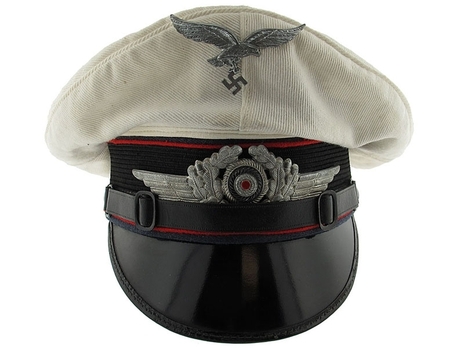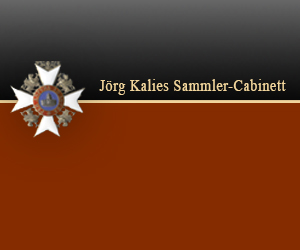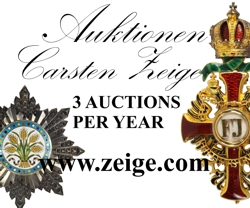Luftwaffe Anti-Aircraft/Artillery NCO/EM Ranks Summer Visor Cap
SKU: 22.GOR.01.01.01.02.02.002
Estimated market value:











Estimated market value:
Attributes
History
The German Wehrmacht was composed of three main branches, the Heer (Army), the Kriegsmarine (Navy), and the Luftwaffe (Air Force). The Heer and Kriegsmarine uniforms were based upon the designs utilized by their predecessor organizations, the Reichsheer and the Kaiserliche Marine (Imperial Navy). Conversely, the Luftwaffe uniforms were based upon the uniforms worn in the sports and paramilitary organizations that were the forerunners of the Luftwaffe. The Luftwaffe uniforms were specifically designed to deviate from the designs of the other Wehrmacht service branches. It was also necessary that the uniforms differentiate between military and civilian pilots.
There were two main organizational precursors of the Luftwaffe, the German Air Sports Association (DLV or Deutscher Luftsportverband), and the National Air Raid Protection League (RLB or Reichsluftschutzbund). The DLV included both a civilian group and a secret military sub-group called the DLV-Fliegerschaft (Pilot Base).
The DLV and the RLB were officially founded in 1933, and they were used to secretly train members for future roles in the Luftwaffe. The DLV became obsolete after Hitler’s official introduction of the Luftwaffe in 1935, and it was disbanded in 1937.
In 1938, the traditional saucer form (Tellerform) of the visor cap was changed to a new saddle form (Sattelform).
The “Service” Visor Cap was worn by General Officers, Officers, Non-Commissioned Officers, and Enlisted Men in the Luftwaffe. The design for the Luftwaffe visor cap was based upon the visor cap worn by DLV personnel.
The visor cap is composed of several main elements, including the cloth top cover, the cap band, the piping, the visor, and the chin strap/cord. In the cap interior, the main elements include the inside lining, the diamond-shaped moisture shield, the sweat band, and the manufacturer's logo and associated information. Each cap is also adorned with an oak leaf wreath and cockade in the centre of the cap band, and a Luftwaffe pattern national emblem above the cap band and along the front seam.
The caps of Generals and Officers are generally made from a higher quality tricot cloth or doeskin, while the NCO/EM caps are made from lower quality cloth, including worsted wool and rayon, or waterproof tricot cloth.
There are two main models of the visor cap, the standard blue-grey top caps, and the white top caps (Sommermütze) for wear during the summer months. The visor caps manufactured during the Second World War do not feature a removable top cover, but prior to the beginning of the war, there were examples of the Luftwaffe visor cap that were made with removable top covers for interchanging the blue and white tops.
The caps manufactured until the end of 1938 have cap bands composed of black ribbed mohair, while the caps manufactured after 1938 have cap band made from black ribbed rayon. The Luftwaffe visor caps feature the band seam along the front of the cap.
The cap band has piping along the top and bottom edges, and there is also piping featured on the crown. For General Officers, the piping is composed of gold-coloured mesh, which may be made from gilt braiding or celleon. Officer caps feature silver-coloured mesh, which is composed of bright aluminum. The piping on the visor caps of NCO/EM ranks reflects the wearer’s specific branch of service/arm of service (Waffenfarbe). Each of these branches was associated with a specific colour. These Waffenfarben were included in the design of the rank and other uniform insignia of Luftwaffe personnel.
A simplified overview of the Waffenfarbe colours follows. Not all of these will appear on the NCO/EM Visor Caps.
White: General Officers
Golden-Yellow: Flying Troops (Fliegertruppe)
Red: Anti-Aircraft Troops/Luftwaffe Artillery
Brown: Luftwaffe Signals/Communication Corps (Luftnachrichtentruppe)
Black: Reich Air Ministry, Construction Engineer Corp (Baupioniere) or Luftwaffe Engineer Corp (Luftwaffen-Pioniere)
Dark Green: Administration (Militärverwaltung)
Light/Meadow Green: Radar Units and Air Traffic Control
Dark Blue: Luftwaffe Medical Corps (Sanitätstruppe)
Light Blue: Transport Units (Transporteinheiten) or Luftwaffe Reserve
Carmine: General Staff Service Officers (Generalstabsoffiziere) and Veterinary NCOs/EMs
Pink: Corps of Engineer Officers (Ingenieuroffizierkorps)
Wine Red: Military Judicial Officers (Militärgerichtsbarkeit)
Prior to 1942, the visors for General Officers and Officers were made from black leather. After 1942, the shortages of leather forced the visors to be made from Vulkanfiber. Conversely, the visors for NCO/EM ranks were always composed of Vulkanfiber. These Luftwaffe visors were never made from plastic. The underside of the visor is always a light green colour and generally features a checkered pattern.
The chin cord for General Officers and Officers is composed of bullion wire. The wire is gold-coloured (gilt or celleon) for Generals, and silver-coloured (aluminum) for Officers. The chin strap for NCO/EM ranks is composed of black leather. The pebbled buttons which hold the cord/strap in place match the colour of the cord/strap.
The inside lining of the caps is generally composed of cotton moire or chintz. The lining in the caps of NCO/EM ranks tends to be rust-coloured. The moisture shield is made of transparent celluloid. If present, the manufacturer mark is often placed below the moisture shield.
The sweatband tends to be made from red tinted brown leather, which may be stamped with the unit of the wearer if the cap was produced prior to the Second World War.
The manufacturer mark, when present, was placed on or under the moisture shield. Well-known manufacturers include the Luftwaffe Sale Department (Verkaufs-Abteilung der Luftwaffe), Emil Schebeler, Willy Rast, Robert Lübstein, and Erel. The manufacturer mark generally features the year of production and the size of the cap.
The insignia featured on these visor caps includes a Luftwaffe pattern national emblem eagle and a national-colours cockade surrounded by a wreath with spread wings. The eagle was produced in two distinct patterns. The 1st pattern eagles were produced from 1934-1936, and they feature a “droop” tail, while the 2nd pattern eagles were produced from 1936/1937-1945, and they feature a “flared” tail.
On General and Officer caps these insignia are hand-embroidered in bullion wires, gold-coloured bullion wire for Generals and silver-coloured bullion wire for Officers. On the caps of NCO/EM ranks, the insignia are composed of silver-coloured light metal (Leichtmetall) for early visor caps, and pot metal for later visor caps. When the visor caps of Generals and Officers were purchased from private manufacturers, the insignia could be produced from metal. When this occurred, it was the eagle that tended to be made from metal while the cockade, wreath, and wings remained embroidered.


Comments
Sign in to comment and reply.


Scroll Top